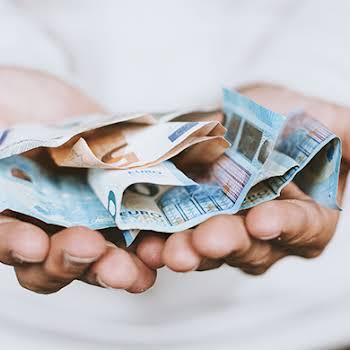
By IMAGE
22nd Oct 2017
22nd Oct 2017
In a meeting or in a restaurant, during dinner and even in bed, we are all guilty of being on our phones. Obsessed by them, they steal our attention from the people around us and direct it towards a screen. Referred to as ‘phubbing’, a combination of the words, phone and snubbing, this technology-induced state plays havoc with our careers and relationships.
What we know about Phubbing.
- Technology is clever! Each time you use your phone it’s psychoactive design triggers a feeling of pleasure that makes you want to repeat the behaviour that activated it in the first place. The outcome, you stay ‘plugged in’ as your phone slowly steals your ability to maintain attention, to be productive and engage in conversation.
- Phubbing is a time thief. When you are distracted by a ping notification, be it an email or a social media message, the distraction causes you to lose focus on your conversation. As each distraction takes up to 3 minutes to recover from it becomes increasingly difficult to maintain, engage or rejoin a real-time conversation.
- When ‘phubbed’ you feel excluded and isolated. Research into this phenomenon tells us that the feelings experienced in that moment of ‘phubbing’ are comparable to the feelings experienced when you are in actual physical pain.
- Apart from appearing unprofessional, uninterested and rude, when focusing on your phone you cannot concentrate. As a result, you make more mistakes, take longer to complete tasks, and damage relationships. This decreases your ability to work in a team, to be innovative or creative and ultimately impacts your professional satisfaction.
- Starving yourself of social connections in favour of time on your phone results in an empty feeling of being busy but not productive, connected but not engaged, overwhelmed yet unable to focus.
Some Solutions
If you are a phubber, there are some things you can do to change this behaviour:
Turn off your notifications. Sure, it’s nice to see how well your post is doing or if you have new emails but do you need to know about every notification? Turn off your notifications and schedule time blocks for checking your email, news, social and entertainment feeds.
Create a distraction folder. Scroll through your phone and delete any apps that you don’t use. Now create a folder called ‘DISTRACTIONS’ (using all caps). Move the apps that consume your time into your ‘DISTRACTIONS’ folder. This instant reminder that you have a choice – between distraction and productive work is a simple trigger that will help you make better choices.
Develop Routines: When you get into the office put your phone into your drawer. Train yourself to leave for 10 minutes at first. Slowly increase the amount of time you leave it there until you reach the point that you only check your phone at certain times – maybe every hour? Trial it and see how much more work you get done.
Designate phone-free activities: Decide on tasks that you will complete without looking at your phone. For example: No phones in meetings, while replying to emails or writing reports. Put it on flight mode for 60-minute sessions. Commit to engaging in your work and only look at your phone at the end of the hour.
Create one rule: When you’re chatting with a colleague, customer or client, put your phone on flight mode. This is really hard to do but once you begin the process of focusing your attention away from your phone, and towards your work, you will be surprised at the increase in productivity. You will also notice an improvement in the quality of your relationships and how much better you feel about yourself.
Your 60-second recap
To wean yourself off your phone, and re-engage with the world around you, turn off notifications, create a distraction folder, develop a routine of not looking at your phone for 60-minute periods, designate phone-free activities and put it on flight mode when talking to colleagues.
By Sinead Brady























